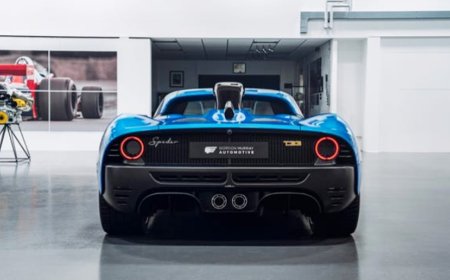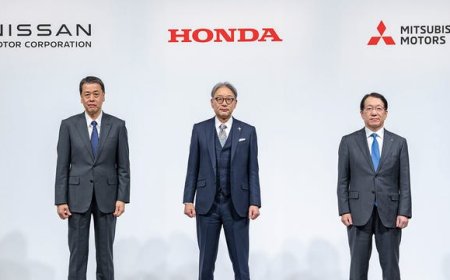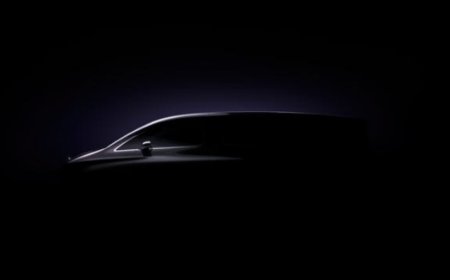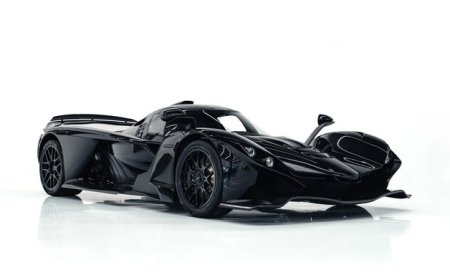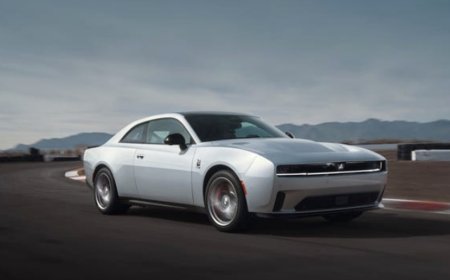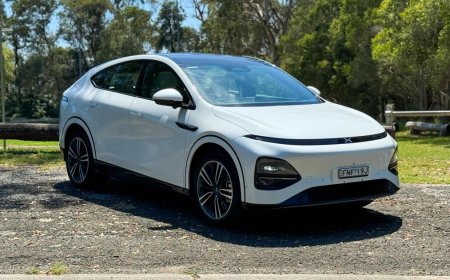Honda CEO struggles to justify a merger with Nissan
Honda’s CEO struggles to explain why the merger is happening, analysts remain skeptical, and Foxconn waits in the wings.
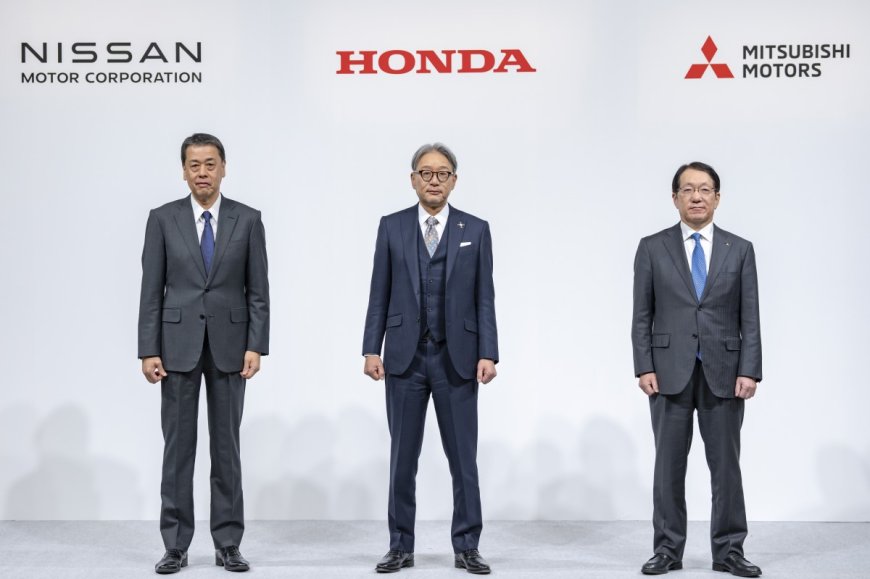
The automotive world is abuzz with news of a potential merger between Honda and Nissan, two Japanese automakers grappling with their own unique challenges. Despite the headlines, the merger has been met with skepticism from analysts and confusion among industry insiders.
Even Honda’s CEO, Toshihiro Mibe, struggled to articulate the strategic benefits of the partnership. When recently asked why Nissan would make a good business partner for Honda, Mibe said “That's a difficult one." While the merger could create a global automotive giant producing 7.4 million vehicles annually, critics are questioning whether this union is a savvy strategic move or a desperate gamble.
Related: GMC Sierra EV first drive: A shockingly agile elephant
A merger built on uneven ground
Honda and Nissan’s partnership doesn’t appear to be a merger of equals. Honda has maintained relative stability thanks to its strong hybrid lineup and loyal customer base. However, the company has struggled to make a significant impact in the electric vehicle (EV) market, particularly after its partnership with General Motors fell apart.
View the original article to see embedded media.
Nissan, on the other hand, is in dire straits. The automaker has seen its financial health deteriorate, its dealer network falter, and its EV lineup stagnate. The Leaf, once a groundbreaking EV, now feels dated, while the Ariya has failed to gain traction.
Analysts believe Honda may be stepping in as Nissan’s white knight to prevent a potential hostile takeover by Taiwan’s Foxconn. Despite Honda’s insistence that the merger is “not a rescue,” many see it as an attempt to prevent further destabilization of Nissan and protect Japan’s automotive industry from foreign control.
Related: Cybertruck sales tanking, Tesla offers free charging with major strings attached
Government pressure and strategic incentives
Speculation has swirled that Japan’s Ministry of Economy, Trade and Industry (METI) played a role in encouraging the merger. By endorsing the partnership, METI could be seeking to ensure that Nissan remains under Japanese control, thwarting Foxconn’s interest in acquiring the struggling automaker.
Foxconn, known for manufacturing Apple’s iPhones, has reportedly put its plans to bid for Nissan on hold, awaiting the outcome of the Honda-Nissan discussions. While Foxconn hasn’t entirely ruled out a future bid, the company seems content to let the two Japanese automakers determine their path forward before making its next move. Nissan
What each automaker brings to the table
On paper, the merger could bring some advantages. Honda’s expertise in hybrid technology could help modernize Nissan’s aging lineup, while Nissan’s established EV infrastructure might give Honda the boost it needs to compete in the growing electric market. Additionally, Nissan’s extensive manufacturing network and presence in Southeast Asia could complement Honda’s global operations.
However, the overlap between the two companies is substantial, and it’s unclear whether their combined efforts would create a stronger entity. Julie Boote, an auto analyst with Pelham Smithers Associates, expressed doubts about the merger’s viability, noting that Honda ideally would have partnered with a healthier, more financially stable company.
Both automakers are also burdened by overcapacity issues and face mounting competition from Chinese EV manufacturers—a fact that both encourages and undermines a potential alliance.
Related: 2025 Toyota Crown Signia review: Too much of a good thing? Mitsubishi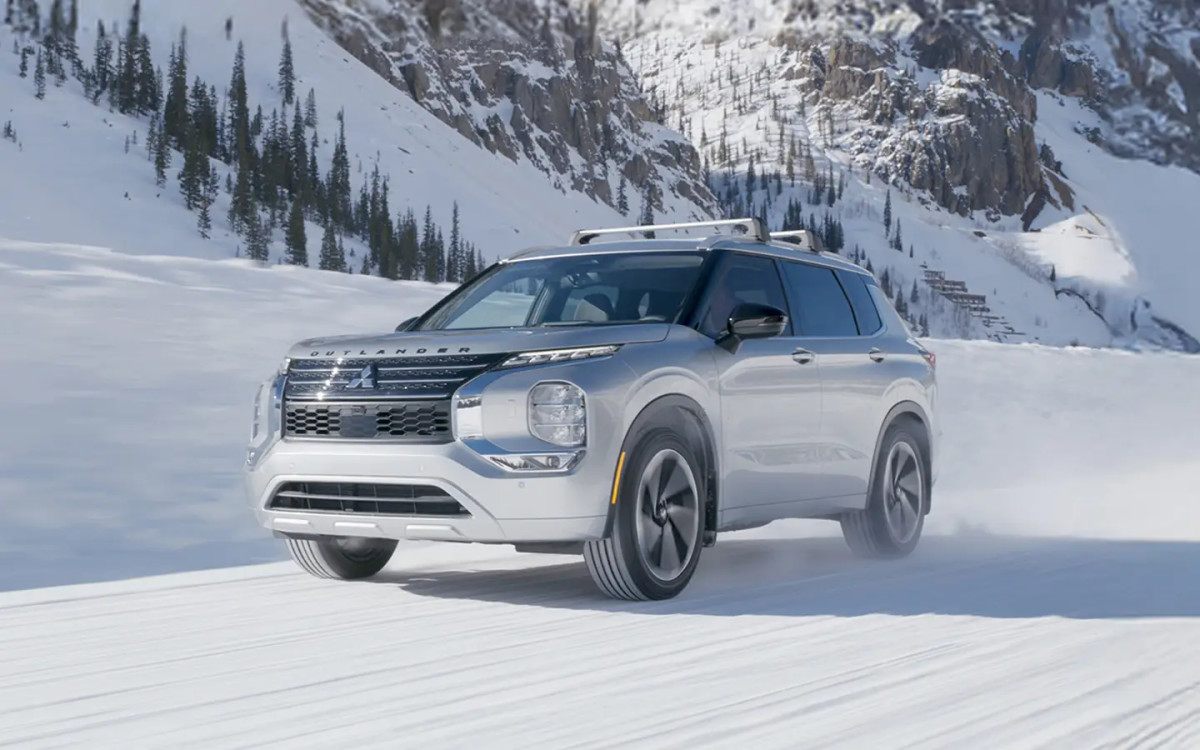
A long road to recovery
If the merger proceeds, it won’t be a quick fix. Analysts at AlixPartners estimate that it could take three to five years for the companies to see any meaningful results. In the meantime, rivals like Toyota, Volkswagen, and emerging Chinese automakers are likely to widen the competitive gap.
Carlos Ghosn, Nissan’s exiled former CEO, has been vocal in his criticism of the merger. “That means you’re putting control above performance,” said Ghosn. “Personally, I don’t think it’s going to be successful.”
Related: 2026 Hyundai Palisade dares to take on Range Rover luxury
Ambivalence from investors
Since news of the potential merger surfaced, the share prices of Nissan’s and Honda’s stocks have fluctuated significantly. After soaring more than 60% on news of the deal, Nissan’s stock has tumbled in recent days, driven by concern that investors would hold a lower stake in the proposed joint holding company.
Honda, meanwhile, saw its stock price jump about 17% in recent days after the automaker announced plans to buy back roughly $7 billion worth of shares by next December. Honda’s announcement helped alleviate earlier concerns from investors who worried that the merger with Nissan would negatively impact the company’s value. Honda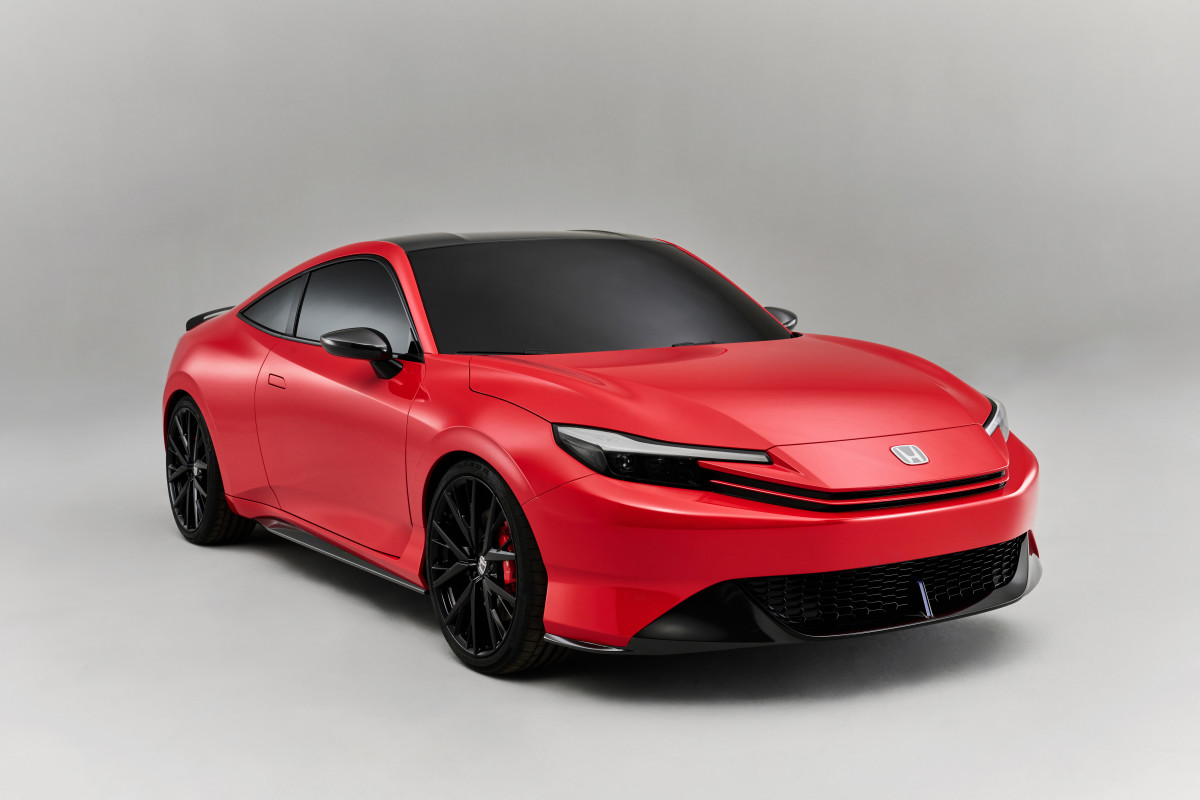
Final thoughts
The Honda-Nissan merger is fraught with questions. Why would Honda align itself with a company on the brink of financial ruin? Is this a calculated move to protect domestic interests, or a desperate gamble to stay relevant in an increasingly competitive market?
Without clearer communication from the companies involved, the merger risks being viewed as a last-ditch effort rather than a bold strategy. If even Honda’s CEO can’t convincingly explain the partnership’s rationale, it’s no wonder the automotive world remains skeptical.
For now, the road ahead for Honda and Nissan is anything but smooth. While the merger could create opportunities for both companies, it also underscores the challenges they face in navigating a rapidly evolving industry. Whether this union becomes a success story or a cautionary tale remains to be seen.
Related: Massive VW Group flaw left 800,000 owners' data publicly accessible since the summer
